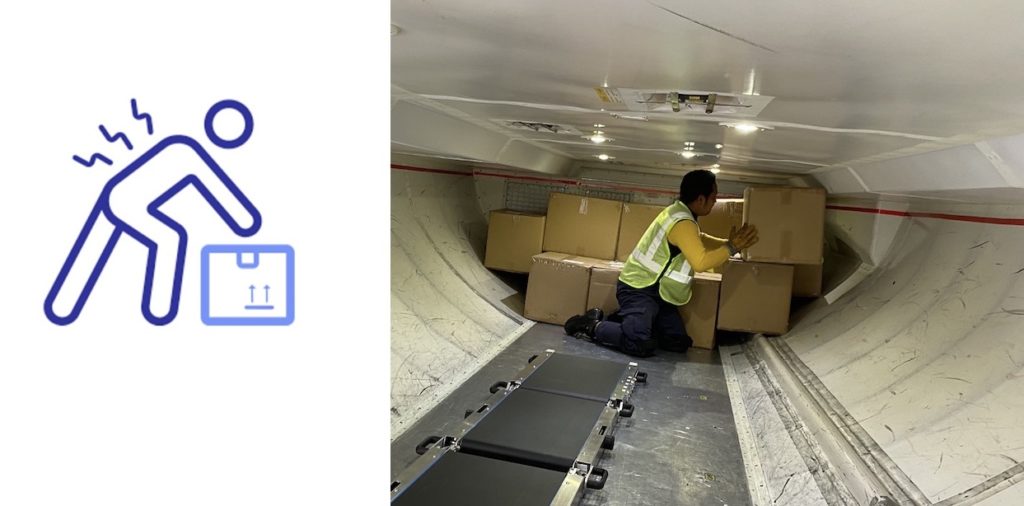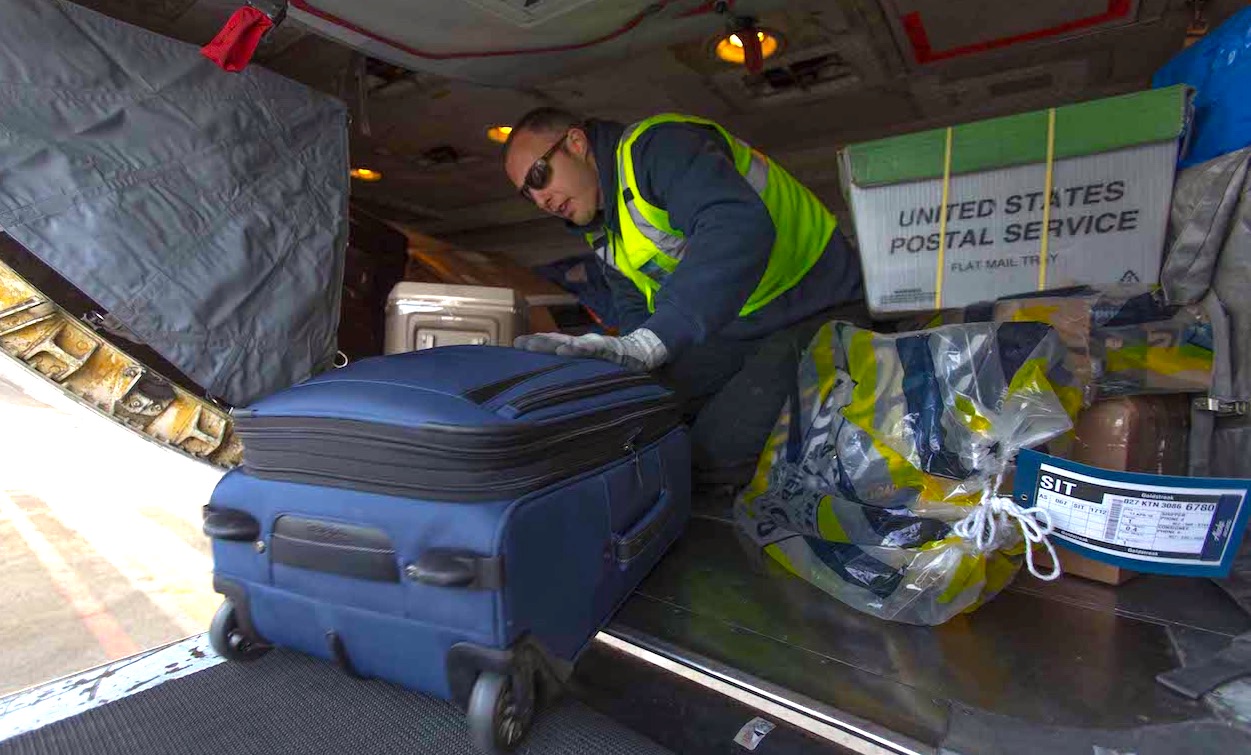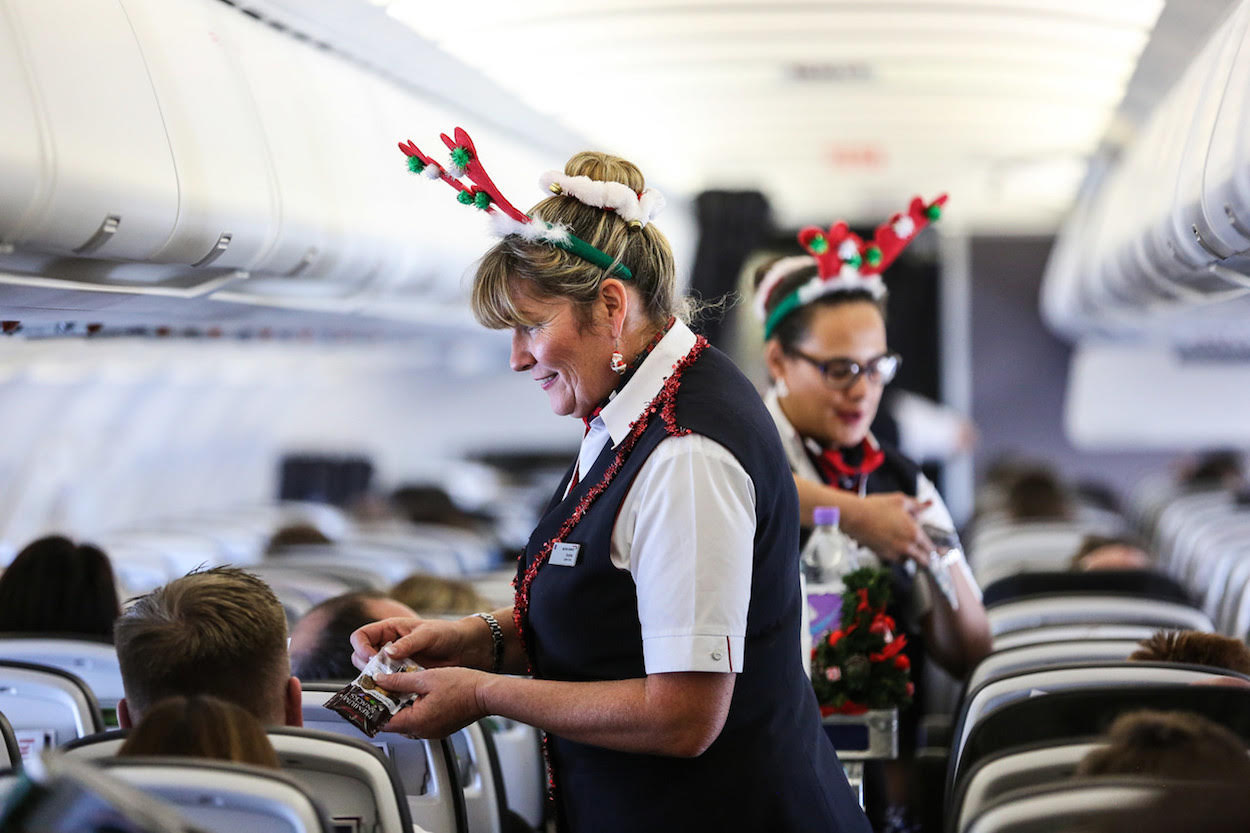Working in a stooped position created 32% more stress on the back than kneeling, increasing the likelihood for injury.
The need for ramp agents to lift, twist and throw heavy bags when loading and unloading aircraft manually accelerates the risks of back injury. It also increases operational expenses due to workers’ comp claims, medical treatment, time away from the job and turnover.
In some types of aircraft, these stressors are compounded as agents stoop while performing the loading or unloading task because of low clearance in the belly. A German study showed working in this position escalated the possibility of injury with the stooped task identified as the most strenuous from 9 motions measured. Additional research revealed that working in a stooped position created 32% more stress on the back than kneeling, increasing the likelihood for injury by a corresponding factor. Implementation of mechanical aids was identified as the best solution outside of redesigning the aircraft to create more headroom.
With TISABAS, baggage and cargo are mechanically moved in the belly, eliminating the need for agents to throw heavy bags, mail and freight the length of the aircraft. It also allows agents to kneel, rather than stoop, when working in low clearance environments.




